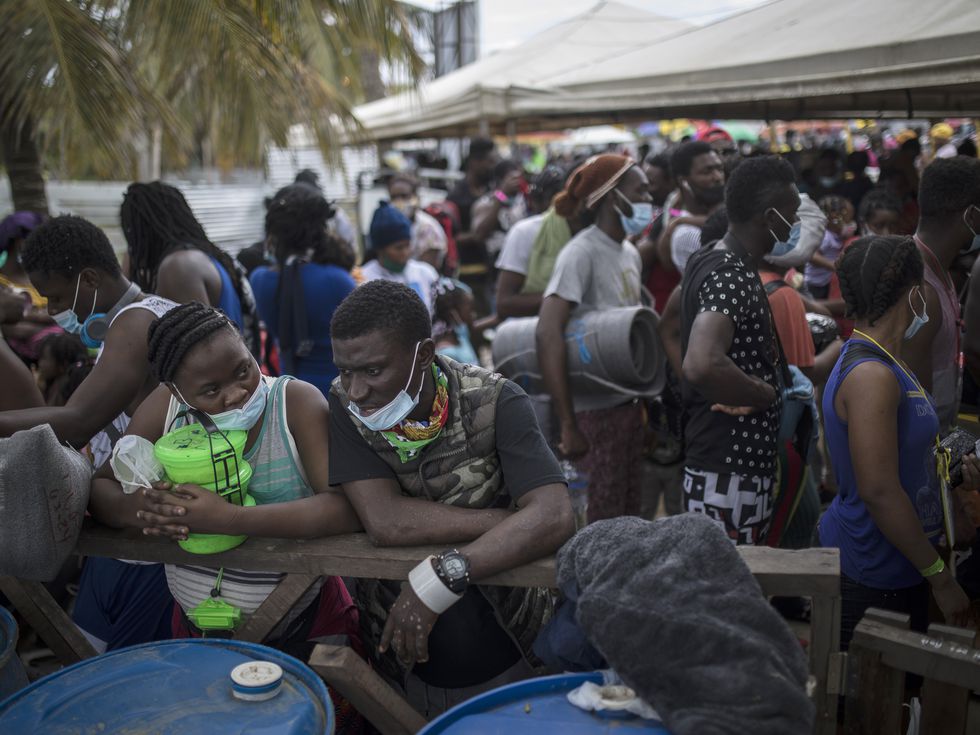The Department of Homeland Security and the Department of Labor will allocate thousands of temporary work visas for citizens of Honduras, El Salvador, Guatemala and Haiti in 2022, the federal agencies said Monday, only days after the Biden administration was criticized for not inviting the Northern Triangle countries, along with other Latin American and Caribbean nations, to its Summit for Democracy.
Twenty thousand additional H-2B visas — which authorize U.S. employers to hire foreigners who do not work in agriculture on a temporary basis — will be available to hire more employees during the first half of the government’s fiscal year, which runs from October through September. The majority of the permits will be awarded to returning workers, but 6,500 will be reserved for Salvadorans, Hondurans, Guatemalans and Haitians.
Haitian nationals were only recently welcomed back to the guest visa program following a three-year hiatus after the Trump administration banned them, alleging that they often overstayed or abused their work authorizations. The Biden administration also restored Haitians to the H-2A program, which is for temporary agricultural workers, many of who come to work in the United States on a seasonal basis.
The measure comes as the Biden administration touts high job growth and news of American employers struggling to find enough workers for their businesses make headlines. Among the requirements to issue H-2B visas is that the employer must show there are not enough U.S. workers to meet demand.
“Additional H-2B visas will help to fuel our nation’s historic economic recovery,” said DHS Secretary Alejandro Mayorkas, adding the program would be reformed in the near future.
Samantha Power, head of the U.S. Agency for International Development, said the measure would expand opportunities for undocumented migrants while addressing the economic drivers of migration from the Caribbean and Latin American nations in turmoil.
“This work is a critical complement to the investments the United States is making to create jobs, reduce violence, spur agricultural productivity and strengthen governance in Guatemala, Honduras, El Salvador, and Haiti,” Power said in a statement.
She added that her office would offer “support” to connect applicants from the Central American nations with U.S. employers and help them navigate the visa application process.
President Joe Biden has made U.S.-Central America relations — with a focus on Honduras, Guatemala and El Salvador — a cornerstone of his diplomatic agenda. He released a $4 billion plan as part of his campaign plan to address the “root causes” of migration from Central America into the United States. It includes developing the regional economies, strengthening democratic institutions and combating corruption in the region.
But in early December, regional leaders and experts criticized the administration’s decision to not invite Guatemala, El Salvador and Honduras to its first Summit for Democracy. The two-day conference brought politicians, journalists, activists and policy leaders together to discuss the opportunities and challenges ahead for democratic systems across the globe. Other countries from Latin America and the Caribbean that did not receive an invitation were Venezuela, Cuba, Nicaragua, Haiti and Bolivia.
“Of course, their political systems have decayed; they have populist, corrupt leaders and spreading criminality,” Michael Shifter, the president of the Inter-American Dialogue, told the Miami Herald, of the Northern Triangle countries, “But especially in light of the Biden administration’s inclusive approach to extending invitations, stigmatizing them does not make sense.” (https://www.bakersfield.com/ap/news/thousands-more-work-visas-approved-for-central-american-nations-haiti/article_aaa61a32-cc2f-5c85-9c4d-d967ec720025.html)
Original Source: AP



































